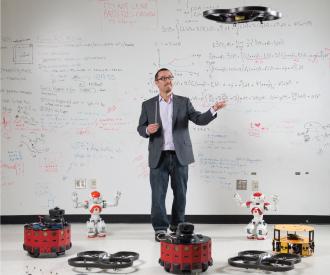Workforce & Education
From top-ranking colleges and universities to Georgia Quick Start — the No. 1 workforce development program in the country — Georgia invests in preparing talent. Locate or expand here, and you’ll find a versatile Georgia workforce that can meet a variety of needs. You’ll also be doing business in an employment-at-will and right-to-work state, with low unionization.
Whatever your business does, Quick Start will teach Georgians how to do it well.
Georgia graduates are versatile, diverse – and in great supply




